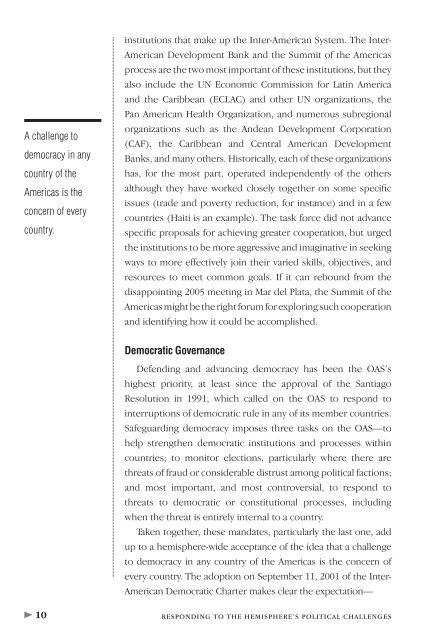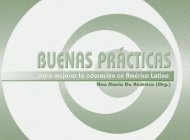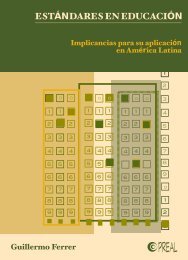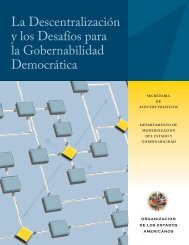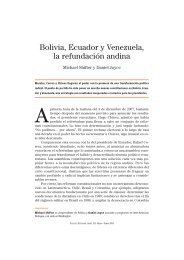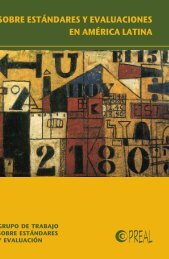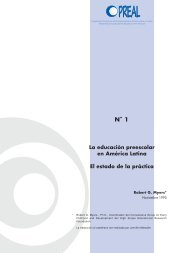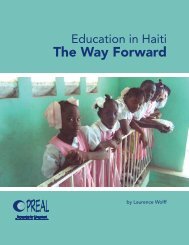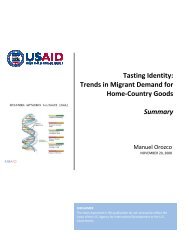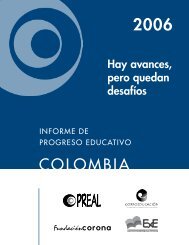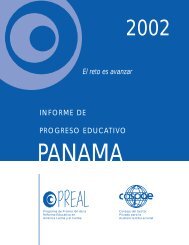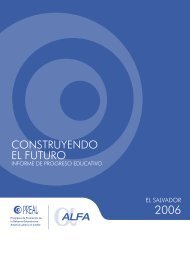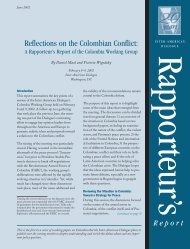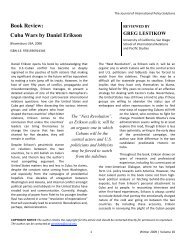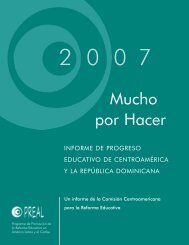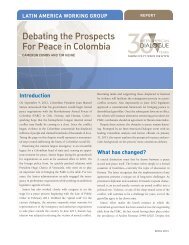View PDF Document - Inter-American Dialogue
View PDF Document - Inter-American Dialogue
View PDF Document - Inter-American Dialogue
You also want an ePaper? Increase the reach of your titles
YUMPU automatically turns print PDFs into web optimized ePapers that Google loves.
A challenge to<br />
democracy in any<br />
country of the<br />
Americas is the<br />
concern of every<br />
country.<br />
institutions that make up the <strong>Inter</strong>-<strong>American</strong> System. The <strong>Inter</strong>-<br />
<strong>American</strong> Development Bank and the Summit of the Americas<br />
process are the two most important of these institutions, but they<br />
also include the UN Economic Commission for Latin America<br />
and the Caribbean (ECLAC) and other UN organizations, the<br />
Pan <strong>American</strong> Health Organization, and numerous subregional<br />
organizations such as the Andean Development Corporation<br />
(CAF), the Caribbean and Central <strong>American</strong> Development<br />
Banks, and many others. Historically, each of these organizations<br />
has, for the most part, operated independently of the others<br />
although they have worked closely together on some specific<br />
issues (trade and poverty reduction, for instance) and in a few<br />
countries (Haiti is an example). The task force did not advance<br />
specific proposals for achieving greater cooperation, but urged<br />
the institutions to be more aggressive and imaginative in seeking<br />
ways to more effectively join their varied skills, objectives, and<br />
resources to meet common goals. If it can rebound from the<br />
disappointing 2005 meeting in Mar del Plata, the Summit of the<br />
Americas might be the right forum for exploring such cooperation<br />
and identifying how it could be accomplished.<br />
Democratic Governance<br />
Defending and advancing democracy has been the OAS’s<br />
highest priority, at least since the approval of the Santiago<br />
Resolution in 1991, which called on the OAS to respond to<br />
interruptions of democratic rule in any of its member countries.<br />
Safeguarding democracy imposes three tasks on the OAS—to<br />
help strengthen democratic institutions and processes within<br />
countries; to monitor elections, particularly where there are<br />
threats of fraud or considerable distrust among political factions;<br />
and most important, and most controversial, to respond to<br />
threats to democratic or constitutional processes, including<br />
when the threat is entirely internal to a country.<br />
Taken together, these mandates, particularly the last one, add<br />
up to a hemisphere-wide acceptance of the idea that a challenge<br />
to democracy in any country of the Americas is the concern of<br />
every country. The adoption on September 11, 2001 of the <strong>Inter</strong>-<br />
<strong>American</strong> Democratic Charter makes clear the expectation—<br />
10<br />
RESPONDING TO THE HEMISPHERE’S POLITICAL CHALLENGES


